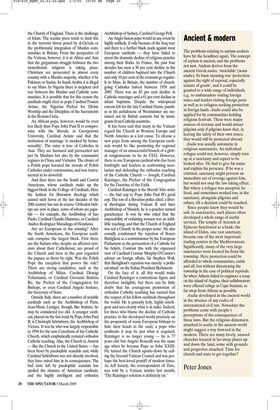Ancient & modern
The problems relating to asylum-seekers have hit the headlines again. The concept of asylum is ancient, and the problems not new. Asylum derives from the ancient Greek asulos, ‘inviolable’ (noun asulia). Its basic meaning was ‘protection against the right of reprisal, especially seizure of goods’, and it could be granted to a wide range of individuals, e.g., to ambassadors visiting foreign states and traders visiting foreign ports as well as to refugees seeking protection in foreign lands. Asulia could also be applied for by communities holding religious festivals. These were major sources of revenue and would attract pilgrims only if pilgrims knew that, in leaving the safety of their own states, they would still be protected abroad.
Asulia was usually automatic in religious sanctuaries. An individual refugee could not, however, simply turn up at a sanctuary and expect to be looked after. He had to give his name and explain his presence. If he was a criminal, sanctuary might prevent an immediate act of revenge against him, but would not stop the law taking effect. But where a refugee was accepted, he lived, and sometimes worked too, in the sanctuary, alongside pilgrims and others, till a decision could be reached.
Since people knew they would be safe in sanctuaries, such places often developed a whole range of useful services. The temple of Artemis at Ephesus functioned as a bank; the island of Delos, one vast sanctuary, became one of the most important trading centres in the Mediterranean. Significantly, many of the very large sanctuaries were located far from the township. Here protection could be afforded to whole communities, cattle and all, but without threatening the township in the case of political reprisals. So when Athens failed to engineer a coup on the island of Aegina, their collaborators were offered refuge at Cape Sunium, as far away from Athens as possible.
Asulia developed in the ancient world in the absence of any codes of international civil law. Nowadays the problems come with people’s perceptions of the consequences of those laws. But the religious dimension attached to asulia in the ancient world might suggest a way forward in the modern. There are many lovely, unused churches located in far-away places up and down the land, some with grounds and properties attached. Time for church and state to get together?
Peter Jones


























































 Previous page
Previous page